Estonian Defence Forces © Pildid.mil.ee
I will start this article with a literary reference that seems pertinent to the times threough which we’re currently living. It was the English writer Rudyard Kipling of Jungle Book fame who wrote: ““We’re all islands shouting lies to each other across seas of misunderstanding.” The quotation comes from Kipling’s first book, “The Light that Failed”, and it’s about unrequited love for a woman on the part of a young artist who is going blind. Kipling was just 26 years old when he wrote it and was suffering the pangs of unrequited love himself at the time. The quotation, however, seems strangely apt for today’s world and appropriate as a response to the conscienceless aggression of Vladimir Putin and his attempt to seize Ukraine and make it a part of Russia. Yes, Putin is isolated, except for his pack of tame sycophants, who are probably not very entertaining when it comes to conversation, seeking to gain his favour with empty lies of exaggerated admiration. He can massage his own deluded ego, however, by listening to world leaders who telephone him regularly and waste their collective breaths, trying to persuade him to desist. “There is no point in talking to Vladimir Putin if we really want him to understand he is isolated,” said Kaja Kallas, Prime Minister of Estonia. If famous figures, world leaders, are taking the time to call him, it must make him feel important, even loved, in a strange sort of way. Is it love? Is it hate in disguise? “Love and hate are not blind” wrote Nietzsche, “but they are blinded by the fire that they themselves carry with them.”
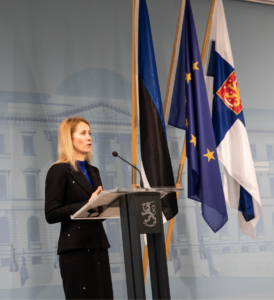
For goodness sake, let’s not give Putin a box of matches. “I feel that if everybody is constantly calling him, he doesn’t get the message that he’s isolated,” Kallas told an audience in the Estonian capital, Tallinn, “so if we want to get the message through that actually ‘you are isolated’, don’t call him. There’s no point.”
Estonia’s Prime Minister fears that with world leaders beating a path to his door, Putin is going to remain convinced that he’s the king-pin, the heavyweight, the big cheese, even the top banana. “He feels that he’s the centre of attention because everybody wants to talk to him, but what do we get out of this?” Kallas asked. “I don’t see any results, because after all these talks, Bucha happened; Irpin happened. We don’t see any signs of de-escalation,” she noted. Nor will we, I fear, unless Russian armour suddenly finds itself coming face-to-face with NATO armour and America enters into this war Putin started.
Then we enter a whole new ball game and this bloody but relatively small conflict turns into global conflagration which, even if Putin’s forces are defeated, will leave behind it a trail of blood and a lot of corpses. Kallas was asked in an exclusive interview for Euractiv if it made any sense to keep diplomatic channels with Russia open. She replied that she can see no point in even talking to Putin.
Kallas has been described as “Europe’s new Iron Lady” (Presumably not because she has a melting point of 15380C, nor a density of 7.87 g/cm3, but because she’s tough). And she is.
Certainly her approach to Putin has been uncompromising. Estonia’s contribution to the war Ukraine has been forced to fight, proportionate to its size, is the greatest in Europe: 0.81% of GDP. Latvia comes next, with 0.72%, still way ahead of third place Poland, with a generous (but not Earth-shattering) 0.46%. Interestingly, it’s the United States in 4th place.
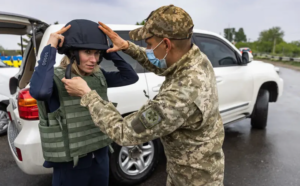
The Finbold website explains: “It is worth noting that a significant share of the aid is allocated through traditional foreign donor channels like money towards urgent support, health services and food assistance to Ukrainian refugees impacted by the war.” In any case, little Estonia is more than doing its fair share to help. The thing about Tallinn I most remember is how clean it is, or at least was while I was there. As the famous Chinese philosopher Kong Qiu or K’ung-fu-tzu (the Master Kong) – better known to us as Confucius – said: “He who wishes to secure the good of others has already secured his own.” In that case, Estonia’s soul must be very healthy. Kallas’s outspoken criticism of Putin, including her call for him to be put on trial for war crimes, has boosted her popularity at home, despite concerns in some quarters that having a border with Russia puts Estonia at risk of Putin’s adventurism and seemingly total lack of any sense of humour. Or a sense of proportion.

In Estonia, Volodymyr Zelensky is seen as a hero; one small Estonian resort town, Tõrva, located in Valga County in southern Estonia, has created a sculpture of Ukraine’s leader in 72 metric tonnes of sand, showing him as part of the Statue of Liberty. The sculpture was carved out by Ukrainian refugees living in the town and funded by local entrepreneurs.
Kallas made clear her position immediately Russia’s unmerited attack began, Tweeting: “I condemn in the gravest manner Russia’s large-scale military attack against Ukraine. Aggression is a crime that demands the clearest international reaction and strong response. We are with Ukraine and the Ukrainian people at this dark hour.
We #StandWithUkraine. Слава Україні (Glory to Ukraine)!”
GLORY (AND ROCKETS) TO UKRAINE
Putin has promised to attack any long-range weapons supplied by the West and his cruise missile assault on Kyiv in early June was meant to be part of that plan, with a claim that any new arrivals would be targeted, too. Putin threatened this military escalation without specifying what the new targets might be, but the threat came days after the United States announced plans to deliver $700-million (€653-million) of defence assistance, including four precision-guided, medium-range rocket systems, along with helicopters, Javelin anti-tank systems, radar systems, tactical vehicles and more. Military analysts say Russia hopes to swiftly overrun Ukraine’s encircled eastern industrial Donbas region, where Russia-backed separatists have been fighting the Ukrainian government since 2014. It will take a couple of weeks or so for the new weaponry to be delivered and put in place. Estonia, on the other hand, has donated a third of its military defence spending to Ukraine. Estonia’s Central Bank has even issued a new €2 coin designed by a Ukrainian refugee.
It’s worth remembering, whenever Putin or his religious lapdog, Patriarch Kirill, talk about Ukrainian forces being unkind to the pro-Russia terrorists in Donbas that it was those terrorists – perhaps I should call them ‘separatists’ – who shot down Malaysian Airlines flight MH17 over Donbas in 2014.
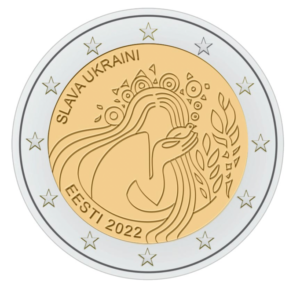
Moscow has claimed that it was shot down by Ukrainian forces, even though the Ukrainians trying to hold their country together had no reason to do so, the separatist they’re fighting lack any aircraft to shoot down. What’s more, the weapon used was a missile of the 9M38 series, launched through a BUK TELAR missile system, which had been transported to its launch site in a farmer’s field near the town of Pervomaisklyi directly from the Russian Federation. Then, with one of its two missiles missing, it returned to Russia. Investigators concluded that it had been fired by Russia’s 53rd Anti-Aircraft Missile Brigade, based in Kursk. Immediately after the attack, the separatists and their Russian allies claimed on-line that they had shot down a large Ukrainian military plane, although these claims disappeared from the Internet as soon as it became clear that the target had actually been a civilian airliner. All the 283 passengers and 15 crew were killed and four men – three Russians and one Ukrainian – are still on trial in the Netherlands for the act, although they are, of course, being tried in absentia. Russian news sources are still saying there is no evidence linking Russian or separatist forces with the incident, but, like much of Russia’s propaganda, this is simply a lie.
Estonian anger with Russia is real, even though it is Ukraine, not Estonia, that is under attack,: a petition in Tallinn calls for the address of the Russian embassy there to be changed to “Free Ukraine 1”, just to remind diplomats of how most people in the world (and most certainly in Estonia) think about their invasion.

But not everything has been going Kallas’s way politically, even if she seems to have successfully found a way through it so far. Indeed, the speaker of the Riigikogu (Estonian parliament), Jüri Ratas, has said that she and her government should have resigned, rather than dismissing seven Center Party ministers, having first obtained assent from the President, Alar Karis. She published her letter to the President on-line, accompanied by this note to the general public: “I have just proposed to the President of the Republic to release from office ministers Jaak Aab, Tanel Kiik, Eva-Maria Liimets, Taavi Aas, Kristian Jaani, Erki Savisaar, and Tiit Terik. Now more than ever, Estonia needs a functioning government, a government that is based on common values.” Her policy plans were, if not derailed, certainly upset a little by votes on pre-school education in the Estonian language, when a proposal to teach the very young only in Estonian was rejected by the Centre Party and EKRE. It’s an issue of great importance in Estonia, even if it is heavily overshadowed by Moscow’s military ambitions and its brutal invasion.
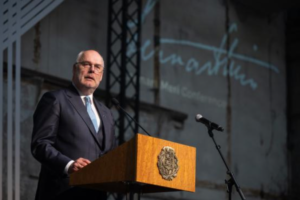
Domestic stories often matter more to ordinary citizens than issues of more international significance. “I believed that the events of 24 February and the genocide committed in Ukraine by Russia had opened the eyes of all parties in the Riigikogu to the importance of having a common understanding of the dangers to our independence that we are facing as a neighbour of Russia,” she wrote. “Unfortunately, it turned out yesterday that there are two parties in the Riigikogu that, even in the current situation, are unable to come together and stand for the protection of our independence and constitutional values.” Kallas sees a strong link between the language issue and Russia’s unwarranted aggression: “When I was appointed prime minister,” she wrote, “I promised to dedicate my efforts to securing the future of the Estonian people. We will secure our future not only by increasing military spending but, above all, by the unity of our people and the unwavering will to defend our independence.” She went on to explain the perceived link: “Proficiency in the Estonian language is a prerequisite and foundation for this. In a situation where the Centre Party is actively working against the most important core values for Estonia in the government, we can no longer continue cooperation with them.” Problems for politicians always seem more intractable where national pride and even nationalism are involved. But there is more to it than that. Some fear that Putin could use the existence of a Russian-speaking minority in the Baltic states to justify aggression.
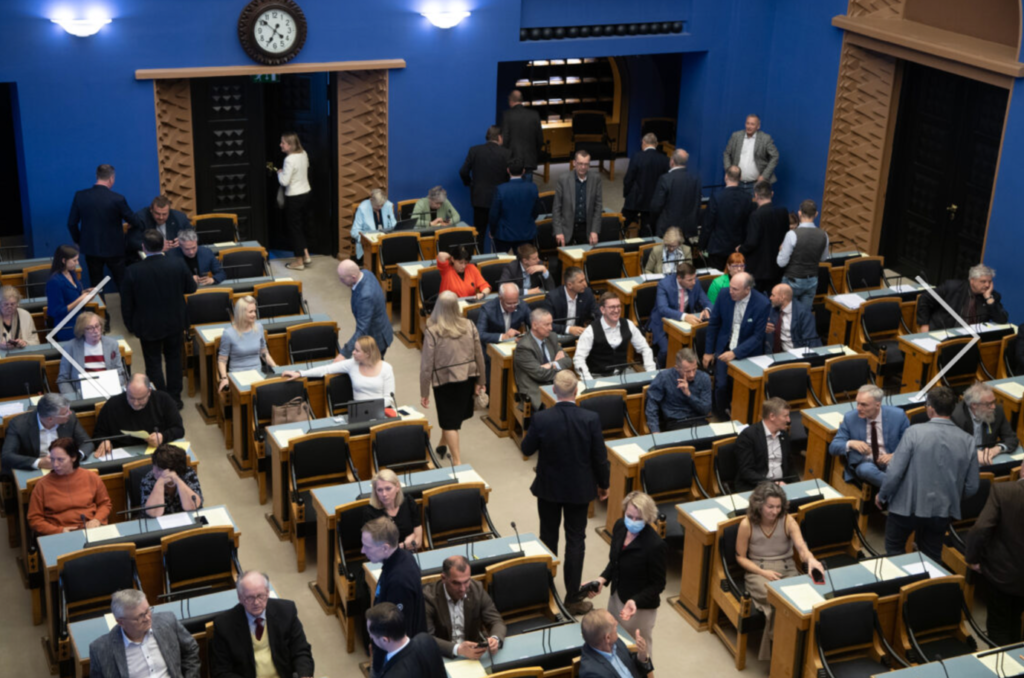
It’s not a fear Kallas shares. “We just conducted a survey asking our Russian speaking minority which country they feel emotionally connected to,” Kallas told the groupe d’études géopolitiques, “and 74% said they feel emotionally connected to Estonia.” What about possible support among Russian-speaking Estonians for a Russian invasion? “We don’t see that as a possibility. We have 300,000 Russian speakers whose native tongue is Russian, but they are not a homogenous group. There are different views regarding this war, and the majority of our Russian speakers are Estonian citizens.” Russian speakers also took part in Estonia’s Independence Day celebrations, which, by an unhappy coincidence, took place on 24 February, the day Russian troops entered Ukraine. “In Eastern Estonia,” said Kallas, “90% of the population are Russian speakers. They live across the river, and it is so much worse on the other side. If you were to ask, especially right now, there are Russians who want to find their way to Estonia. In such a crisis, always look at which way the refugees are going. They are going towards the EU, not Russia.” For Kallas, being a hawk doesn’t just extend to rhetoric. She wants to see real action. “We should move from a deterrence plan to a defence plan so that we are actually able to protect our territory,” she said. “We should also think about our common capabilities, which is a European defence issue. What I mean by this is that there are some capabilities, such as air defence, that are too expensive for any individual state. Just last week, I asked my military to show me how smaller bubbles and bigger bubbles of air defence work, and how far they go. We should do this together. This comes to mind now because defence has been such a national issue.”
As for Kallas’s dismissal of those ministers over their failure to agree on the language issue, the former leader of Estonia’s Social Democrats (SDE), Jevgeni Ossinovski, said he detected an attempt by the Christian Democratic and Conservative Party, Isamaa, to enter into a coalition with the Center and Conservative People’s Party (EKRE) to take over power, making use of the cover provided by Russia’s aggression and public anxiety over Estonia’s place in the resulting international problems.
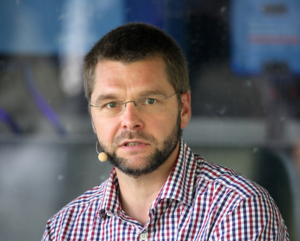
Ratas wrote that Isamaa’s leaders had been shaken by recent opinion polls suggesting that the popularity of Kallas is on the rise. Kallas, it seems, has forced Isamaa’s hand with what Ossinovski described as “shadow play”, which would mean that Isamaa will have to admit that it would like to be in power alongside Center and EKRE but not with Reform and the SDE. To anyone not Estonian the whole thing looks horribly complicated and more of an amusing sideshow that a matter of national importance. As it is, Ossinovski described Kallas’s action as “appropriate”, by accelerating the formation of a new government. Kallas, then, is a smart operator, so what of her background? Born in 1977, she is married with two sons and a daughter. She graduated in law from the University of Tartu in 1999, completing her post-graduate studies at the Estonian Business School in 2007. She is seen as one of Europe’s leading hawks on the issue of Russia, from which Estonia only gained its independence in 1991, which explains the nervousness many Estonians feel about Russia’s seemingly revanchist tendencies. “I am of the lucky generation,” Kallass told The New Statesman in an interview. “We were living in a prison, with no freedom, no choices, nothing. And in 1991, when I was a teenager, we got our independence and freedom back.” She said that things had been very different for her grandparents, at least until the country was swallowed up by the Soviet Union in 1940.
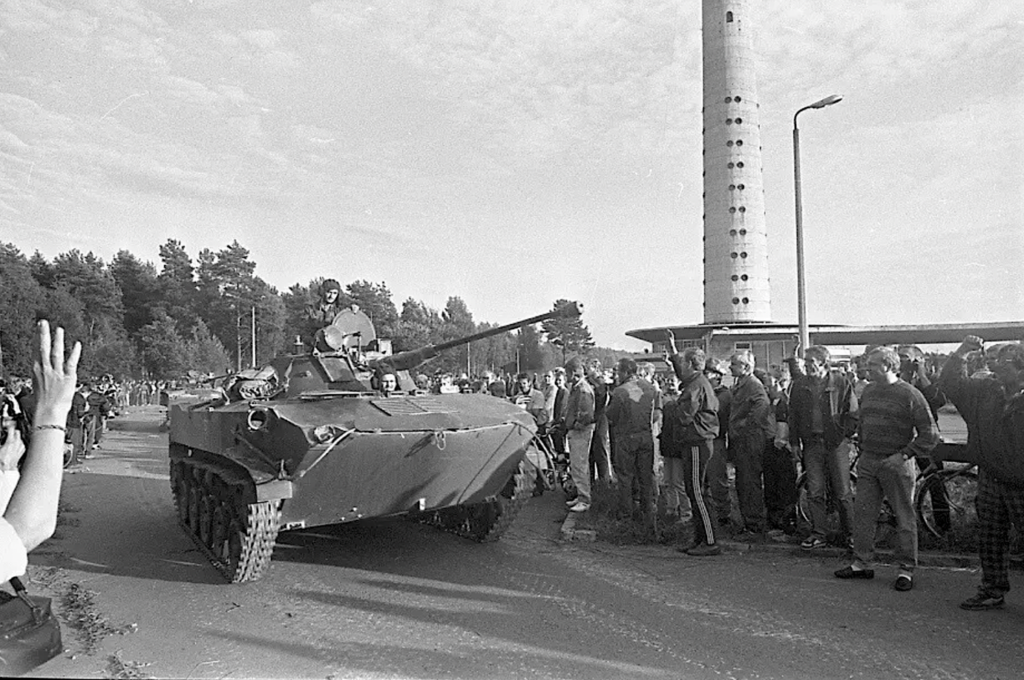
War is terrible, but so would be “peace at any price”, Kallas argues. She has said that peace should not be the ultimate goal. At least, not if it means that everyone stays within the boundaries established by Russia’s aggression. That would still mean that Russia had seized a sizeable portion of Ukrainian territory, and it also means that Putin will not rest there: “If Russia is not punished for what they are doing,” Kallas said in her interview, “then there will be a pause of one, two years, and then everything will continue: the atrocities, the human suffering, everything.” She believes it would not end with Ukraine, either; that will never be enough to satisfy a Putin emboldened by even a little military success. “I mean other countries around Russia. Moldova… The imperialistic dream has never died.” Few doubt that Estonia could be one of Putin’s prime targets. It led to some angry discussions at a recent EU summit. “We had a very heated debate about calling Putin,” Kallas said on Estonian television.
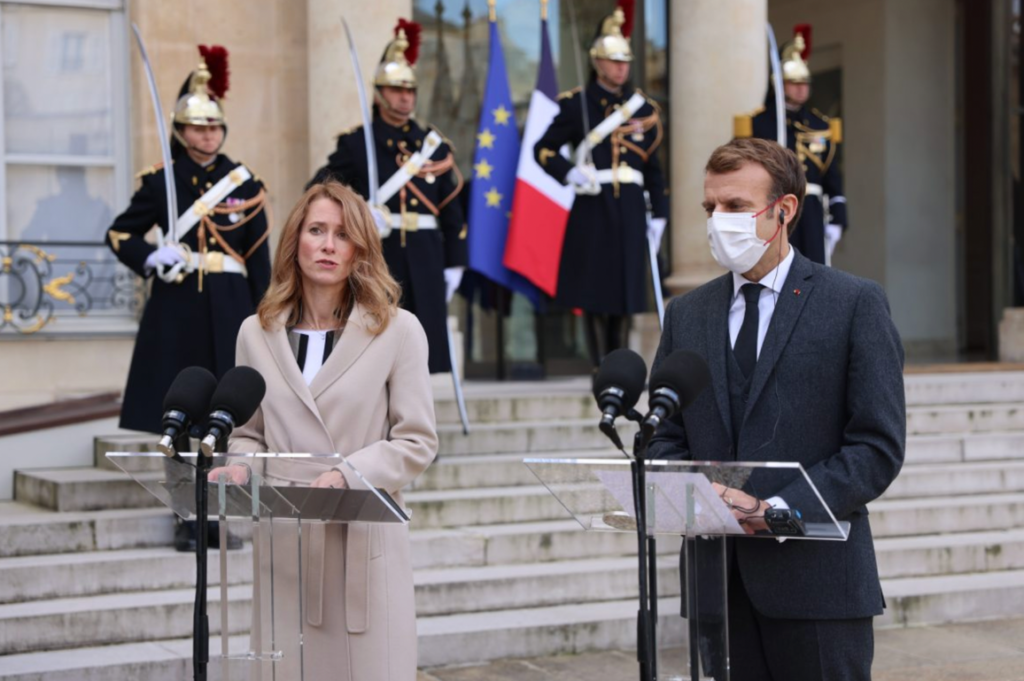
GREEN FOR GO, GO FOR GREEN
Meeting with other EU leaders in Brussels towards the end of May, Kallas stressed the importance of the EU’s “green agenda”, too – the gradual switch to more sustainable sources of energy. Supporters of Kallas see it as a positive move and not only for saving the planet. “The green transition must be a transition that people make,” Kallas said after talks with the President of the European Commission, Ursula von der Leyen, while stressing that it’s a project for ordinary citizens, not just policy-makers. “Achieving our climate objectives will be a change with very broad-ranging impact because we have set ourselves the goal of reaching both climate neutrality and energy independence. But if we are to do so, then those objectives have to be realistic and achievable by everyone.” Kallas said that achieving climate goals and completing the green transition are long-term processes of which the most tangible benefits will be felt in the field of energy, but not only that. “They will allow us to secure independence from Russian energy and cover our own energy needs while maintaining our environment,” she explained.
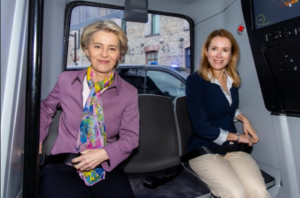
Naturally, Kallas and von der Leyen also talked about the military situation in Ukraine. “The Ukrainians are fighting for European values and simply to belong to Europe,” said Kallas. “We must grant them the hope of becoming an EU candidate country. Russia must not be allowed to think that aggression pays off. To that end we must press ahead with sanctions that make the price that Russia pays for the war even higher. Until Ukraine wins the war, there will always be more that we can and must do.” A few days earlier, Kallas had met with Sweden’s Prime Minister, Magdalena Andersson, and she told her that Estonia supports Sweden’s bid to join NATO. “Accession of Sweden and Finland to NATO will increase the security of us all,” said Kallas, adding that this particular NATO expansion: “is an opportunity to open new doors in defence cooperation between Estonia and Sweden.” Kallas also stressed that just stopping the war is not enough; Russia must be defeated. “We must refrain from premature peace in Ukraine,” she said. “Concluding a peace deal at all costs is dangerous; it must take place at the request and on the terms of Ukraine,” said Kallas. “Ukraine continues to need our military support as a matter of priority in order to fight the aggressor and liberate its territory.”
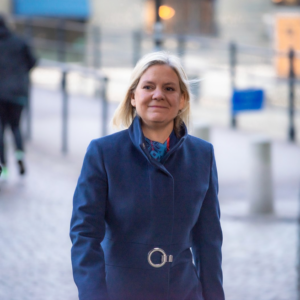
While we’re mentioning green issues, however, it’s worth taking note of Estonia’s plans to help both the economy and the climate in her country. Estonia’s plans, which it hopes to complete by 2035, are based upon five main themes, the goal being to improve the innovation and research and development capabilities in Estonian enterprises, which contribute to the growth of productivity and international competitiveness. “To achieve that,” says the government’s website, “we will develop new support services to encourage innovation in all stages of the business and technology development, such as market monitoring of new technologies and advice on the engagement of intellectual property, new business models and creative competencies. We will also reorganise support for applied research and increase investment in research and development by state-owned companies. We will facilitate the scientific knowledge created in Estonian research institutions to advance to business use faster and we will encourage collaboration between research institutions and entrepreneurs.” It’s an ambitious list of aims for Kallas to achieve. There is a lot to do, judging by the Estonian government’s own website. “To ensure R&D collaboration between research institutions and enterprises in areas that are important for the Estonian economy and its regions (including rural and coastal regions)” (e.g., technologies supporting environmental protection, more efficient use of local resources, ICT), “we will develop sectoral research programmes, rethink smart specialisation priorities, provide support for participation in the EU’s strategic value chains, and promote a sustainable bio-economy.”
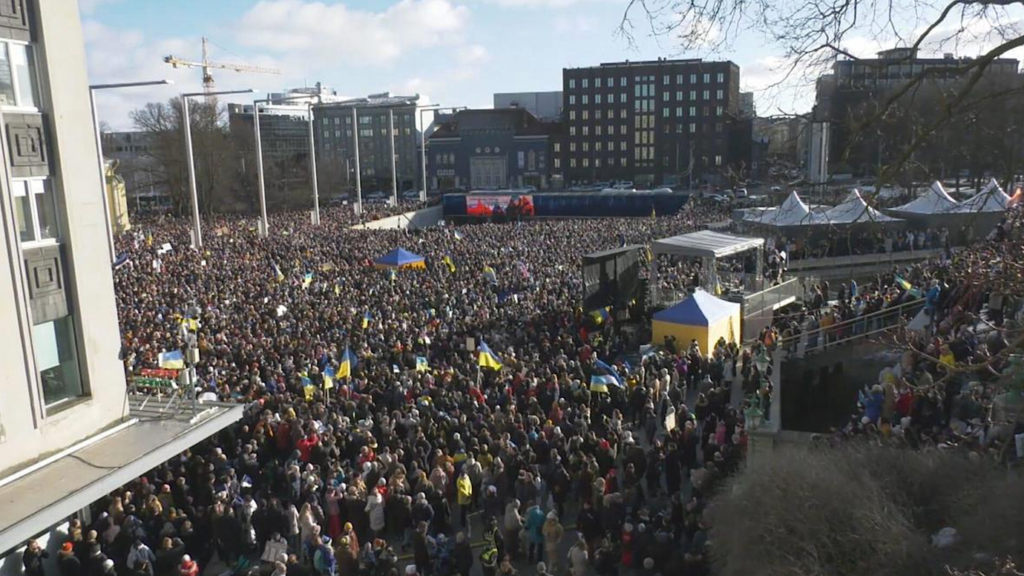
What about the Estonians themselves? Do they agree with the war, with helping Ukraine and with the responsibility for the conflict? A report was commissioned to look into that, data from which shows that 68 percent of people in Estonia view Russia as a threat compared to 24 percent who do not, which does not come as much of a surprise. The results were similar when respondents were asked which statement they agreed with most: “[It was] Russia that invaded Ukraine” (68 percent agreed), [the] West that provoked Russia (15 percent) or that “it was Ukraine that oppressed the Russian-speaking part of the population” (9 percent). Additionally, 65 percent of Estonians believe Ukraine is fighting for democracy in Europe. Sixty-nine percent of respondents agree Ukraine is an independent country, but 24 percent said it was a “puppet of the west”. Fifty-six percent said Ukraine should be a member of NATO while 33 percent said it should be a neutral country.” Not that such opinion polls ever actually change anything, nor mean very much.
ONE DOWN, SEVERAL THOUSAND TO GO
Kallas paid a visit to London where she met the UK’s beleaguered prime minister, Boris Johnson. Unusually, he didn’t greet her on the steps of No. 10, Downing Street, presumably in order to avoid the journalists waiting to ask him about the confidence vote he would have to face later.
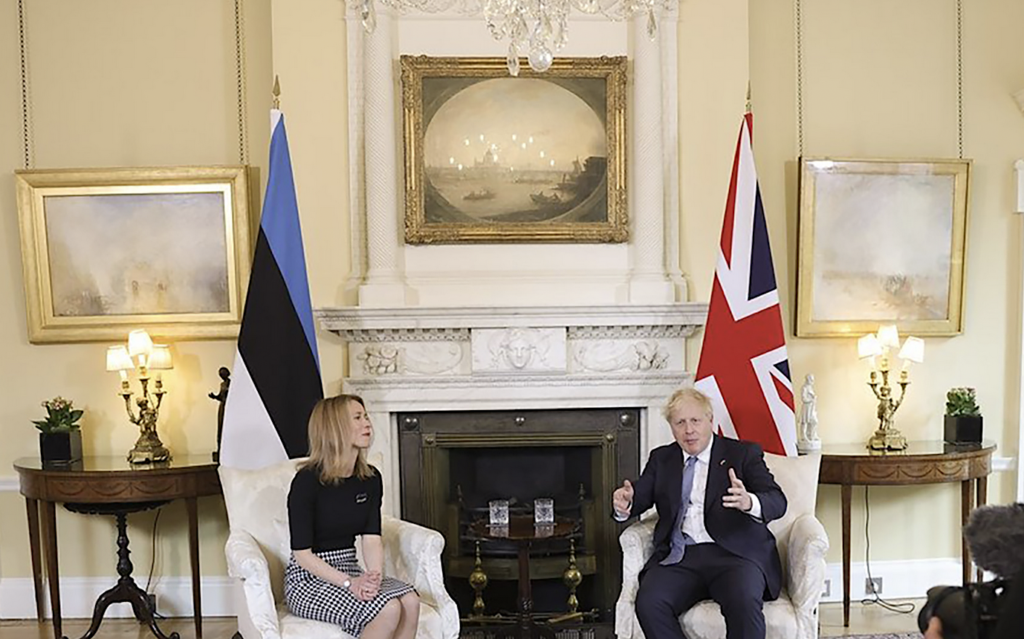
He won it, incidentally, if not very convincingly. Kallas thanked Johnson for his “great leadership”, saying: “We have been great allies in NATO, and we are very grateful for the British troops in Estonia, and also that you have doubled them while the war took place.” Mr Johnson said it was a “great pleasure” to welcome Kallas and praised her for the “outstanding job” she is doing by standing up to Putin. She Tweeted Johnson to say: “Thank you PM Boris Johnson for a great welcome. We share the same vision on bolstering NATO’s Eastern flank. Estonia and the UK will work together in NATO to strengthen the forces & command structures committed to the defence of Estonia.” Kallas’s visit to the UK coincided with the news that one of Putin’s most ruthless mercenaries, Vladimir Andonov, a member of the notorious Wagner group, had been killed in eastern Ukraine, probably by a sniper. Andonov’s nickname was “the Executioner” in recognition of his exceptional brutality. Johnson reassured Kallas that Estonia could “depend on the UK to support it, both through NATO and the Joint Expeditionary Force, as well as through the UK and Estonia’s strong bilateral relationship.” As for the way in which the war seems not to be going quite as Putin hoped, Johnson said that “the Russian President is the author of his own embarrassment.”
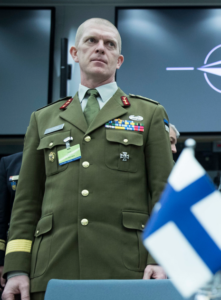
Kallas is on record as saying that, in relative terms, Estonia is one of Ukraine’s biggest supporters, having supplied ambulances and millions of euros in medical aid, as well several tonnes of food aid. Furthermore, despite its small size, Estonia has welcomed large numbers of Ukrainian refugees fleeing the fighting and Russia’s relentless bombardments. “I am very proud of the people of Estonia for the way they have opened their hearts to the people of Ukraine,” Kallas said. “The priority now is to assist the refugees who have come here in adapting to Estonian society and our linguistic sphere and finding their place here so that they are able to cope on their own.” Now out of reach of Putin’s missiles and tanks, this cannot be the end of the road, Kallas admits. “Physical safety alone is not enough, because people need homes, jobs, schools and kindergartens, as well as health care and other services. This is a lot for the state and society here in Estonia to shoulder, and a major challenge, since the refugees that are here already account for well over 1% of the total population.”
Another aim of Kallas is to put up the cost of waging war for Russia. She is cooperating with Estonia’s allies: “to raise the cost of aggression even further for Putin’s criminal regime and to cut off the sources of funding for its war machine.” Speaking in March, she went on to explain the thinking behind the policy: “The European Union’s fourth package of sanctions has just been implemented, and a fifth is being worked on,” she explained. “We are continuing to pursue the economic and political isolation of Putin’s regime.” She highlighted Russia’s expulsion from the Council of Europe and the ordering by the International Court of Justice immediately to suspend all military operations in Ukraine. “These decisions show that the aggressor has no place among us and that its war crimes will not go unpunished,” she said. “Putin must not be allowed to develop a sense of impunity.”
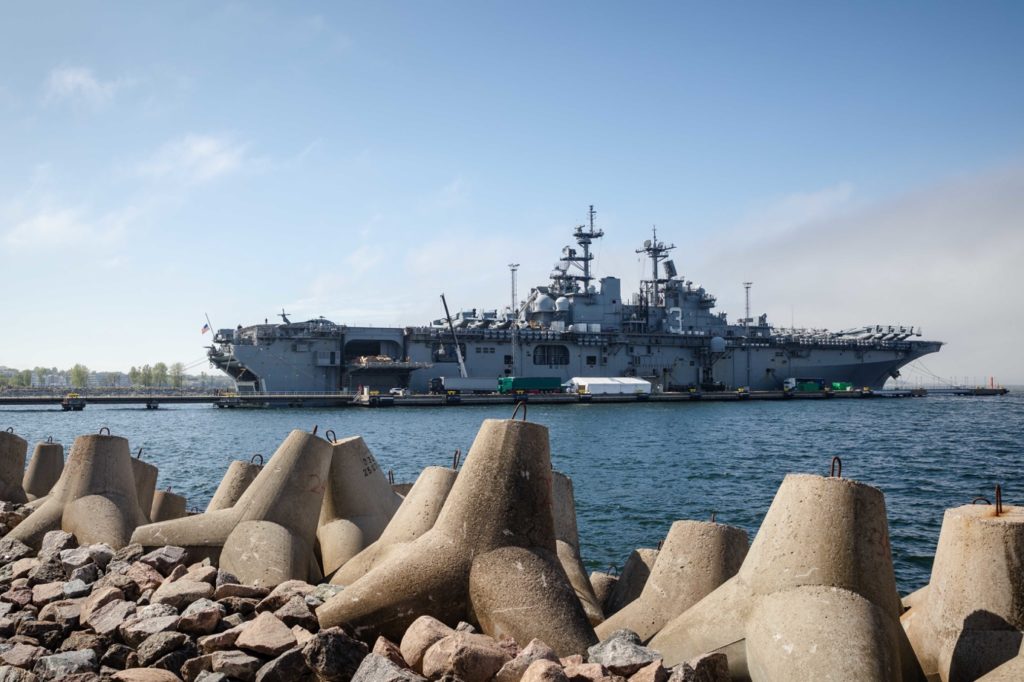
It was on 16 March that Russia ceased to be a member of the Council of Europe after 26 years. The Russian Federation can now no longer take part in the work of the Council itself, nor its various subsidiary organisations, like the CDCJ (Centre Européen de Cooperation Juridique), the committee on legal co-operation in private and public law . The decision to end Russia’s participation led to the launch of action under Article 8 of the Stature of the Council of Europe. The following day, the Council suspended relations with Putin’s puppet-state, Belarus, as well. The exclusion of Russia has been on the cards for some time. Back in 2019, a report prepared by Kanstantsin Dzehtsiarou and Donal K. Coffey described Russia as displaying “persistent and clear disregard of the values and aims of the CoE,” including the occupation of other member states, the sponsorship of separatist movements and by ignoring judgements made in the European Court of Human Rights. In February 2022, 42 out of the 47 member states voted in favour of suspending Russia’s membership as a direct result of its invasion of Ukraine.
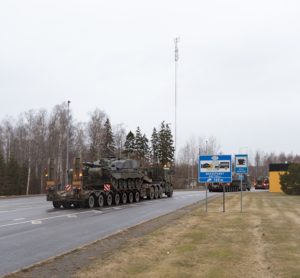
After her brief meeting with Britain’s beleaguered prime minister, Boris Johnson, Kallas said: “Russia’s war in Ukraine has thoroughly changed Europe’s security. The threat that Russia poses is not gone, and NATO must adapt in the new security environment.” Kallas and Johnson agreed that NATO must change its fundamental defence and deterrence position on the east flank and that specific decisions regarding this matter must be taken at the next NATO Summit, to be held in Madrid. “We need stronger, highly prepared forces with functioning NATO management structures to defend Estonia,” Kallas stressed. “We agreed with Prime Minister Johnson that Estonia and the United Kingdom will collaborate on establishing a division-level management structure in Estonia.”
More specific details will be established for the NATO Summit in Madrid. In their discussion about the war Russia started, the two prime ministers acknowledged that Ukraine does not have time to wait and that the free world must act decisively. “Ukraine must win this war and the aggressor must lose,” Kallas emphasised.

Her continuing tough stance on Russia’s aggression has raised her popularity rating at home. Strong leaders are generally appreciated, especially when faced with threats. As for Putin, there seems to be less and less concern about him losing face. He has shown no mercy and no contrition about the invasion, nor about the brutality of his troops during the conflict. History will judge him harshly. He may end up with little choice other than to quote the words of a character in the Rudyard Kipling book I mentioned at the beginning, ‘The Light that Failed’. “I have my own matches and sulphur, and I’ll make my own hell.” Some might argue that Putin has already made a hell for others and Kallas may feel it’s about time he had a taste of it himself.
- As Wikipedia explains, Calisthenics (American English) or callisthenics (British English) is a form of strength training consisting of various movements that exercise large muscle groups such as standing, grasping, or pushing. These exercises are often performed rhythmically and with minimal equipment.

